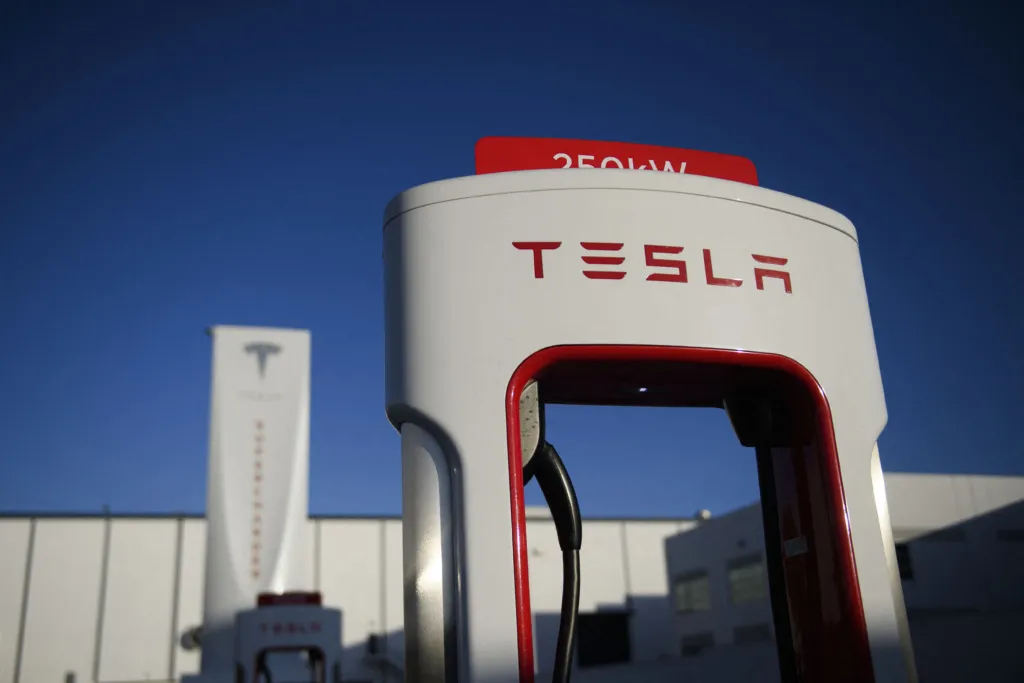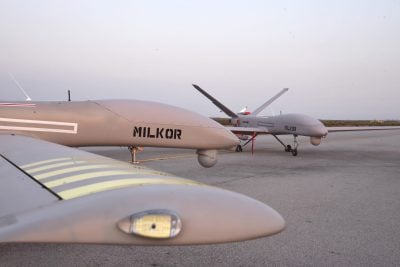Moroccan web developer Khalil Amar was already fixated with the technological prowess of Tesla cars before he imported a Tesla Model 3 from Holland to his home in Casablanca in 2017. Putting the car through its paces over the next four years, Amar would drive 60,000 miles.
“Like when you own an iPhone, if you drive a Tesla you enjoy following a brand that continues to innovate, to show the direction of where we’re travelling as a society,” says Amar, who was taken in by the green credentials of Tesla’s electric vehicles, use of code in its software, gadgets and the end of his gas bills.

Amar founded Tesla Club Morocco four years ago and has been petitioning Tesla’s co-founder and CEO Elon Musk on social media for Tesla Supercharger infrastructure to be installed in the country, yet until recently Musk and his company had been tight-lipped over Tesla’s strategy for Africa.
In October, Tesla made its first move on the continent when the first Supercharger stations were spotted near the main highway at Tangier Al Houara Hilton Resort, and at the Onomo Hotel in Casablanca, where four 150 kW Supercharging stations were installed at each location.
Before Tesla provided its own charging infrastructure, six Moroccan Tesla owners clubbed together to raise €25,000 in 2017 to build a 50 kW fast charger, installing it at a Shell service station in the city of Kenitra. They agreed to exchange data about electric vehicle (EV) use in the kingdom for free electricity from Shell.
“In the early mornings, Tesla drivers going from Casablanca to Tangier or Spain would stop for breakfast in Kenitra and use our home-made fast charger,” says Amar.
As their car batteries charged, the drivers would tuck in to pancakes and bread coated in apricot jam as sunlight scaled the Atlas mountains.
Meals were interrupted by fans keen to take selfies in a Tesla, before the owners would drive along newly-laid asphalt to Tangier or take a short hop with their cars on a ferry to Spain.
Charging times slashed
The establishment of official Tesla charge points in Morocco has now slashed previous charging times. Most Tesla Superchargers can now recharge up to 200 miles of range in just 15 mins, and by establishing networks in the economic centres of Casablanca and Tangier, the car manufacturing giant looks set to attract further Moroccan customers, as well as encourage tourists to drive their Teslas from Europe to Morocco.
There are some 30,000 Supercharging stations dotted across North America, Europe, East Asia, parts of the Middle East, Australia and New Zealand, but they were completely absent in Africa before the two stations in Morocco were built.
A Supercharger is an electric car charger designed for “rapid charging”. Superchargers only work with Tesla Model S, Model X, Model 3, and Model Y cars, and are built, owned and operated by Tesla.
The Tesla app and an in-car navigation system tracks the nearest Supercharger locations, and while the fees for charging are automatically billed to online accounts for drivers in most worldwide locations, Tesla’s Moroccan Superchargers are free.
Establishing charging networks is usually the first step Tesla will take before directly selling cars into a market, setting up showrooms and rolling out service centres.
“Opening the Supercharger network will allow Tesla to study the demand, and to demonstrate their global ambitions, by making it possible to drive Teslas not only in rich countries but now also in developing countries as well,” says Amar.
Tesla is the world’s most valuable automaker with a market cap topping $1 trillion, and Elon Musk remains the richest person in the world, even after a 6 November tweet announcing that he would sell 10% of his stake caused Tesla stock to plummet.

Morocco’s supply chain role
Tesla cars are sold in some 40 countries worldwide and the company has a chance of delivering 1m electric vehicles in 2021, having mostly skirted around global semiconductor shortages by sourcing from different chip manufacturers.
One such supplier, STMicroelectronics (ST), is expanding its site at Bouskoura, just outside Casablanca, to keep up with global demand.
In Bouskoura, ST assembles SiC Mosfet chips used in Teslas and other EVs to manage the flow of electricity from the grid to the battery, converting charges to power fans, pumps and other functions in a car, and facilitates traction in the main inverter, improving the efficiency and range without altering battery capacity.
“ST had been the trailblazer for silicon carbide in automotive electrification, improving overall EV performance which has led to 5-10% improvements in range, as well as being the key technology making the move to high-voltage fast chargers possible,” says Ronan Mulvaney, ST’s corporate spokesperson.
With Morocco having already established a thriving aeronautical ecosystem, analysts say the kingdom is positioning itself to become a centre for chip and battery production for Tesla and other EV manufacturers.
“Discussions have been initiated with the largest suppliers including Tesla, for the production of batteries in Morocco,” says Othmane Kotari, a senior adviser on Morocco and North Africa with Albright Stonebridge Group.
“Even before the crisis Morocco was considered a best cost destination with its direct proximity to Europe, the best infrastructure in Africa and a young population. I think that this kind of initiative can have even more weight to attract Tesla to serve the European market and the African market thereafter.”
When Tesla opens its Gigafactory in Berlin – the firm’s first manufacturing location in Europe – Moroccans will be able to order cars for import but will have to pay 20% VAT and import duties of 2.5%. Tesla’s latest Model 3 sells from $57,000, but with a GDP per capita of $3,000, the demand for expensive Teslas is relatively low.
German automaker Opel will soon begin producing EVs in Morocco, giving Opel and its parent company Stellantis a production base for the future cost-effective export of electric vehicles to markets in sub-Saharan Africa. Their Rocks-e vehicle is to be priced at around €7,000.
Demand set to grow
Although the number of Tesla owners in Morocco will develop slowly, the growing footprint of Tesla in Africa will stimulate local demand for EVs, says Michaël Tanchum, an associate senior policy fellow in the Africa programme at the European Council on Foreign Relations.
“If Tesla Superchargers in Morocco lead to readily available and user-friendly charging stations then it will have been a very important development in spurring wider EV adoption, and Morocco already has a good ecosystem for automotive manufacturing thanks to careful planning by Rabat,” says Tanchum.
The Moroccan government recently scrapped a tax on luxury and EV vehicles, and a ready local supply of cobalt can be easily mined for use in EV batteries, helping lay the foundations for future growth in the sector.
For now, prospective buyers must continue to jump through hoops to get in the driving seat of a new Tesla and import privately, paying a distributor to ship from Europe.
“We still have a decade and a half before gas cars will stop being made, but we’re on a mission with Tesla to accelerate the transition to electric mobility,” says Amar.
Want to continue reading? Subscribe today.
You've read all your free articles for this month! Subscribe now to enjoy full access to our content.
Digital Monthly
£8.00 / month
Receive full unlimited access to our articles, opinions, podcasts and more.
Digital Yearly
£70.00 / year
Our best value offer - save £26 and gain access to all of our digital content for an entire year!
 Sign in with Google
Sign in with Google 



